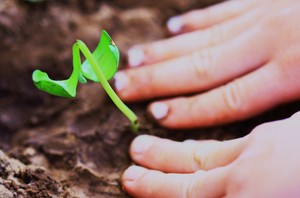Through my years of professionally supporting people in recovery from addiction, I’ve strongly encouraged the development of certain life skills that promote stability in daily life. Incorporating new habits, routines, and abilities increases our resilience and reduces stress. This in turn reduces the risk of relapse and increases opportunities for further growth and healing.
In Step One of the Twelve Steps of Alcoholics Anonymous, the person in recovery is encouraged to consider that through the course of addiction that, “our lives had become unmanageable.” For most in early recovery, this is not hard to acknowledge. Having attained a period of abstinence, we look to the future and consider not only how we will stay clean and sober, but also how we will adjust to life without drugs and alcohol.
In the context of recovery, success in any part of life promotes success in every part of life.
Developing new habits is like receiving learning experiences. It’s painful at first, but the rewards are lifelong.
Let’s start with the basics:
We Come Clean to Stay Clean.
Humility is better than humiliation. In our using days many of us tried to fake our way through everything we didn’t know. Today we need to admit when we don’t know something and ask for the understanding and/or skills we need. Hiding our deficits just perpetuates them and potentially creates new problems down the line. Swallow your pride and get into the habit of asking for what you need.
I Forgot to Remember
Many of the self help programs make use of acronyms to help people in early recovery easily recall new concepts. Those who came before us had the wisdom and experience to know that the first couple years of recovery can be a time in which a person’s short term memory continues to lag. Get yourself in the habit of carrying paper and pen. Writing absolutely everything down will not only make you less forgetful, it will also help with that horrible feeling of, “Am I forgetting anything?”
Start carrying a day planner to work, appointments, and meetings. Start using a calendar at home and hang it in plain view. Missed interviews, blown time slots with professionals and double booking time with supportive others will hinder your recovery. Time management begins with organizing your commitments and then seeking balance. There are few things more dangerous than a person in early recovery with too much time on their hands. Conversely, overbooking increases stress and can leave us overwhelmed and feeling defeated.
Pockets and Purses
Make a checklist of the things you use every day that need to travel with you. Get in the habit of never leaving wherever you are without checking your pockets, purse, or backpack for your keys, cell phone, I.D., wallet, whatever you need to carry and have available. Small addition: move your cell phone charger next to your front door and plug it in the minute you come through the door.
Vitamins and Water
While the first 30 days of withdrawal are usually the hardest, it’s important to acknowledge that our bodies are continuing to heal for up to 18 months after we stop using. Everyone knows we should eat healthy and exercise. Here’s an easy addition: take a multivitamin every day. You’ll get sick less often and you’ll ensure your body gets more of what it needs as it continues to right itself. One more simple habit to start: drink a large glass of water before you reach for coffee in the morning and drink another at bed time. Both of these new habits can be easily incorporated with your bathroom routines.
Reading, Writing, and Recovery
Dedicate time daily to read something that promotes your recovery. Even ten minutes would allow you a few pages of inspirational reading, daily devotions/affirmations, or an article like this one. In this way, you continue to add something to your recovery every day.
Write in a journal even if it’s just a rundown of what you did today. Folks tend to struggle with writing. Think of it as writing a letter to a loved one. You’re sharing your day, your feelings, your victories and setbacks and your plans for the near future.
Incorporate a Spiritual Practice
Anything that connects us to something more powerful than ourselves can be considered spiritual. Whatever it is that you believe in, make a few minutes available to connect to it every day. I recommend doing this at a set time of day routinely. Start your day out on a positive note. Greet the day. Think of what you have to be grateful for.
Recovery has been defined as awareness of the attitudes, beliefs, and behaviors that block change. Addicts and alcoholics tend to resist change. This is fear based behavior. As aggravating as it may be to develop new habits and routines, the rewards are strong and enduring. Give yourself the stability of greater manageability in your daily life.
- About the author Jim LaPierre:
- My story is I'm forever a work in progress and I love connecting with REAL people who are doing great things. I'm blessed to be making a living doing something I love. I'm a proud dad and the luckiest husband ever. I'm an aspiring author - check out my recovery blog at: recoveryrocks.bangordailynews.com Thanks! Jim
Page last updated Dec 06, 2012


